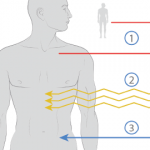LONDON (Reuters)—The heirs of Dolly the sheep are enjoying a healthy old age, proving cloned animals can live normal lives and offering reassurance to scientists hoping to use cloned cells in medicine.
Dolly, cloning’s poster child, was born in Scotland in 1996. She died prematurely in 2003, at age 6, after developing osteoarthritis and a lung infection, raising concerns that cloned animals may age more quickly than normal offspring.
Now, researchers have allayed those fears by reporting that 13 cloned sheep, including four genomic copies of Dolly, are still in good shape at between 7 and 9 years old, or the equivalent of 60 to 70 in human years.
“Overall, the results are suggesting that these animals are remarkably healthy,” says Kevin Sinclair of the University of Nottingham, whose team reported their findings in the journal Nature Communications on Tuesday.
It is the first time experts have made such a detailed age-related health assessment of cloned animals, looking at factors such as blood pressure, diabetes risk and joint damage.
Although no animals were lame, there were signs of mild osteoarthritis in some sheep and one had moderate disease, which scientists say was to be expected at their age.
Dolly was the first mammal to be cloned from an adult cell, using a process called somatic cell nuclear transfer (SCNT).
This involved taking a sheep egg, removing its DNA and replacing it with DNA from a frozen udder cell of a sheep that died years before. The egg was then zapped with electricity to make it grow like a fertilized embryo. No sperm were involved.
Dolly’s creation triggered fears of human reproductive cloning or producing genetic copies of living or dead people, but mainstream scientists have ruled this out as far too dangerous.
Instead, the hope is to develop “therapeutic cloning,” in which cloned cells could be used to regenerate faulty tissue.
Dolly’s healthy heirs offer encouragement for regenerative medicine, although the SCNT process remains tricky and many would-be clones still fail to develop properly, despite technical advances since Dolly’s birth.
“This shows cells can undergo complete reprogramming and it’s reassuring to know that cells can be perfectly normal,” Sinclair says. “The challenge going forward is to increase the proportion of cells that undergo this complete reprogramming or better select for that.”
Parkinson’s Disease
The four sheep cloned using the same genetic material as for Dolly—called Debbie, Denise, Dianna and Daisy—have just had their ninth birthdays and, together with nine other clones, are part of a unique flock based in Nottingham.
